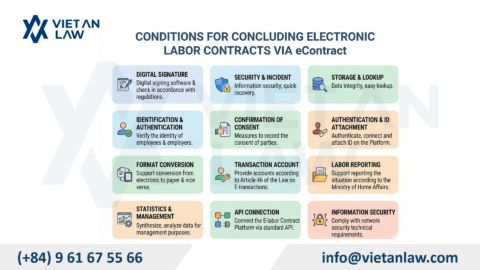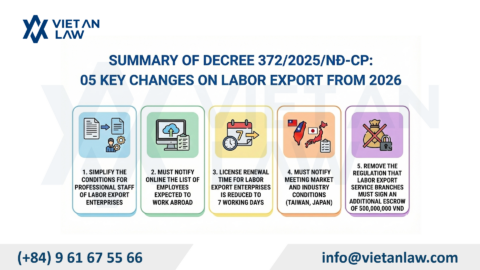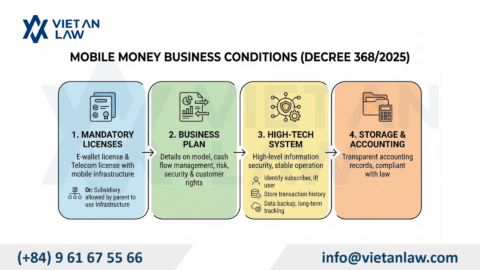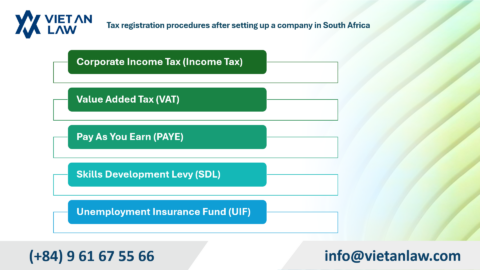Extra-judicial representation is a form of legal representation in which an individual or organization is authorized or prescribed by law to perform transactions or legal acts on behalf of another individual or organization but is not involved in participating in court hearings or proceedings. Which cases are extra-judicial representation, and who is allowed to participate as an extra-judicial representative? In the article below, Viet An Law will provide you with legal issues related to extra-judicial representative in Vietnam.
Table of contents
Currently, cases of extra-judicial representatives include:
Pursuant to Article 27 of the Law on Legal Aid 2017, extra-judicial representation is one of the forms of legal aid. Extra-judicial representation in legal aid is the act of a legal assistant or lawyer acting on behalf of a person receiving legal aid to exercise their rights and obligations in legal relations (criminal legal relations, civil legal relations, administrative legal relations, etc.) before a competent state agency. These tasks are not included in the stages and procedures of litigation.
Thus, the representative scope of the person providing legal aid in this field is often narrow, depending on the will of the person receiving legal aid and the provisions of law in each management field; and only represents the exercise of the rights and obligations of the person receiving legal aid before the competent state agency.
Pursuant to Article 33 of the Law on Legal Aid 2017, the provisions on extra-judicial representation are as follows: Legal aid assistants and lawyers providing legal aid shall act as extra-judicial representatives before competent regulatory agencies for legally aided persons.
Thus, only Legal aid officers and Lawyers are allowed to provide legal aid in this form.
In addition, it should be noted that:
Legal services of lawyers include participation in litigation, legal advice, extra-judicial representation for clients, and other legal services. Pursuant to Article 22 of the Law on Lawyers 2006, amended in 2012 and 2015, one of the scopes of lawyer practice is “Extra-judicial representation for clients to perform work related to the law”.
Thus, in addition to participating in litigation as a representative, protector of legal rights, or defender in cases at litigation agencies, Lawyers also participate in extra-judicial representation for clients.
Pursuant to Article 29 of the Law on Lawyers 2006, a lawyer’s extra-judicial representation activities include representing clients to resolve matters related to the work that the lawyer has accepted within the scope and content stated in the legal service contract or according to the assignment of the agency or organization where the lawyer practices as an individual working under a labor contract.
Some cases of extra-judicial representation by Lawyers can be mentioned as:
In addition to extra-judicial representation in legal aid and extra-judicial representation by lawyers, extrajudicial representation also includes representation by authorization under the Civil Code 2015.
Specifically, under Article 138 of the Civil Code 2015, individuals and legal entities may authorize other individuals and legal entities to establish and perform civil transactions. A person from fifteen years of age to under eighteen years of age may be an authorized representative, except in cases where the law stipulates that civil transactions must be established and performed by a person from eighteen years of age or older.
Note: Transactions established and performed by the representative with a third party must be consistent with the scope of representation, giving rise to rights and obligations for the represented person. The representative must notify the transacting party of the scope of his/her representation.
Some cases of extra-judicial representation by authorization such as:
Pursuant to Clauses 1 and 2, Article 140 of the Civil Code 2015, the term of representation is stipulated as follows:
Under Clause 3, Article 140 of the Civil Code 2015, authorized representation terminates in the following cases:
Pursuant to Clause 3, Article 4 of the Law on Lawyers 2006, as amended and supplemented in 2012 and 2015, it is stipulated as follows:
“A trainee lawyer is (…) entitled to legal advice, extra-judicial representation, and other legal services as assigned by the instructing lawyer with the client’s consent.”
Thus, a trainee lawyer is entitled to extra-judicial representation as assigned by the instructing lawyer with the client’s consent.
According to Point c, Clause 1, Article 73 of the Law on Lawyers 2006, law firms must be obliged to compensate for material damages caused by mistakes made by lawyers to clients while performing extra-judicial representation and other legal services.
When using the lawyer’s extra-judicial representation services, the client must provide all necessary documents so that the lawyer can represent them effectively and legally. These documents include:
Note: All documents must be notarized or certified if required by law or when the lawyer needs to submit them to a state agency. If the client is not sure what documents to provide, Viet An Law will provide detailed instructions to collect the necessary documents.
Above is the advice of Viet An Law for extra-judicial representative in Vietnam. If you have any related questions or need legal advice related to representation, please contact Viet An Law for the best support.




